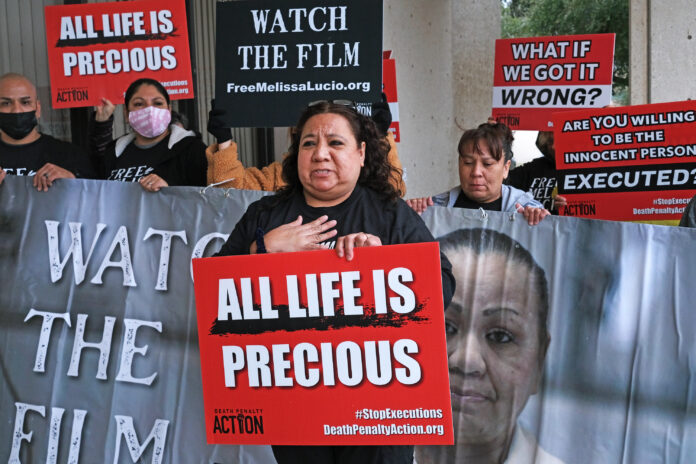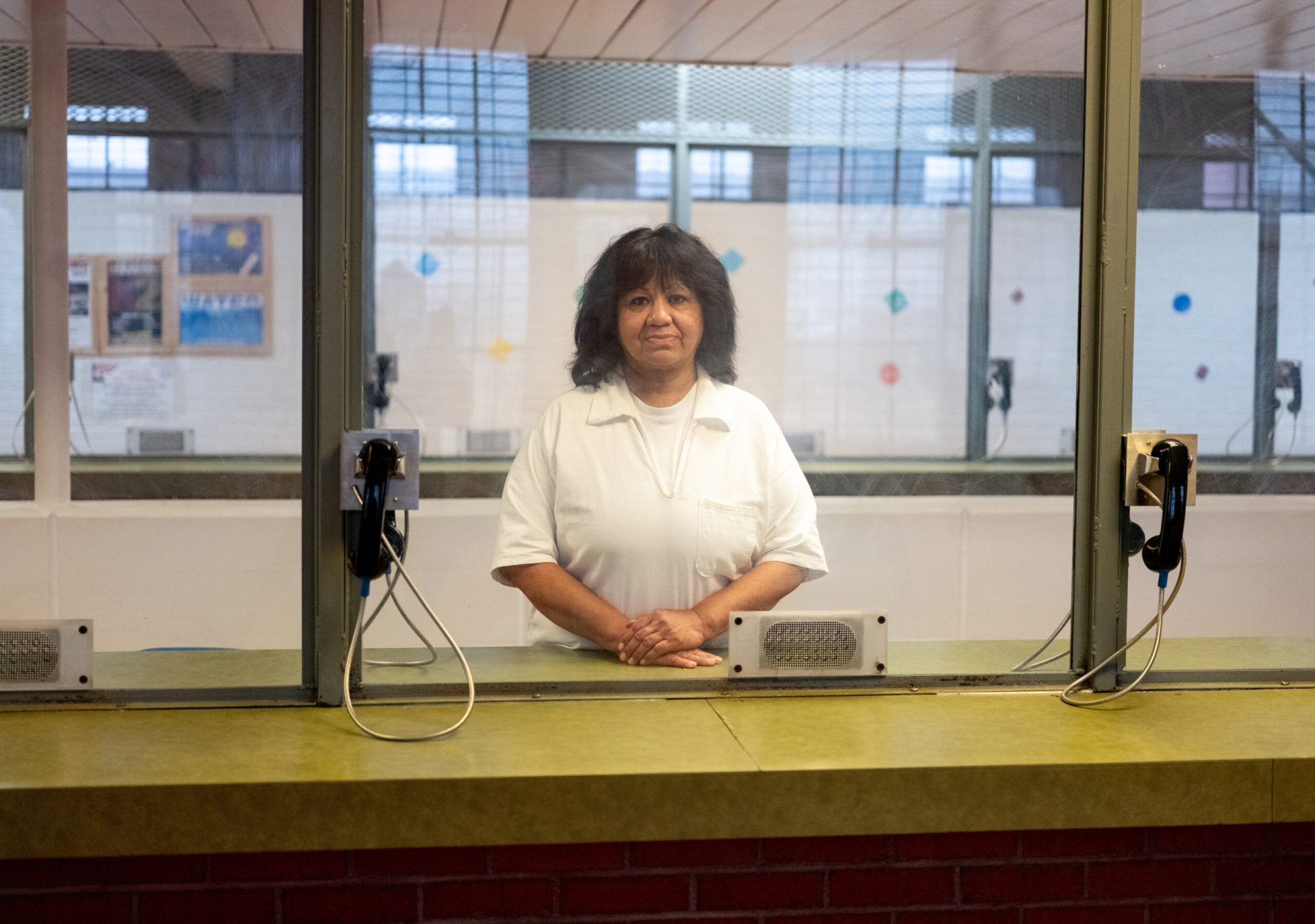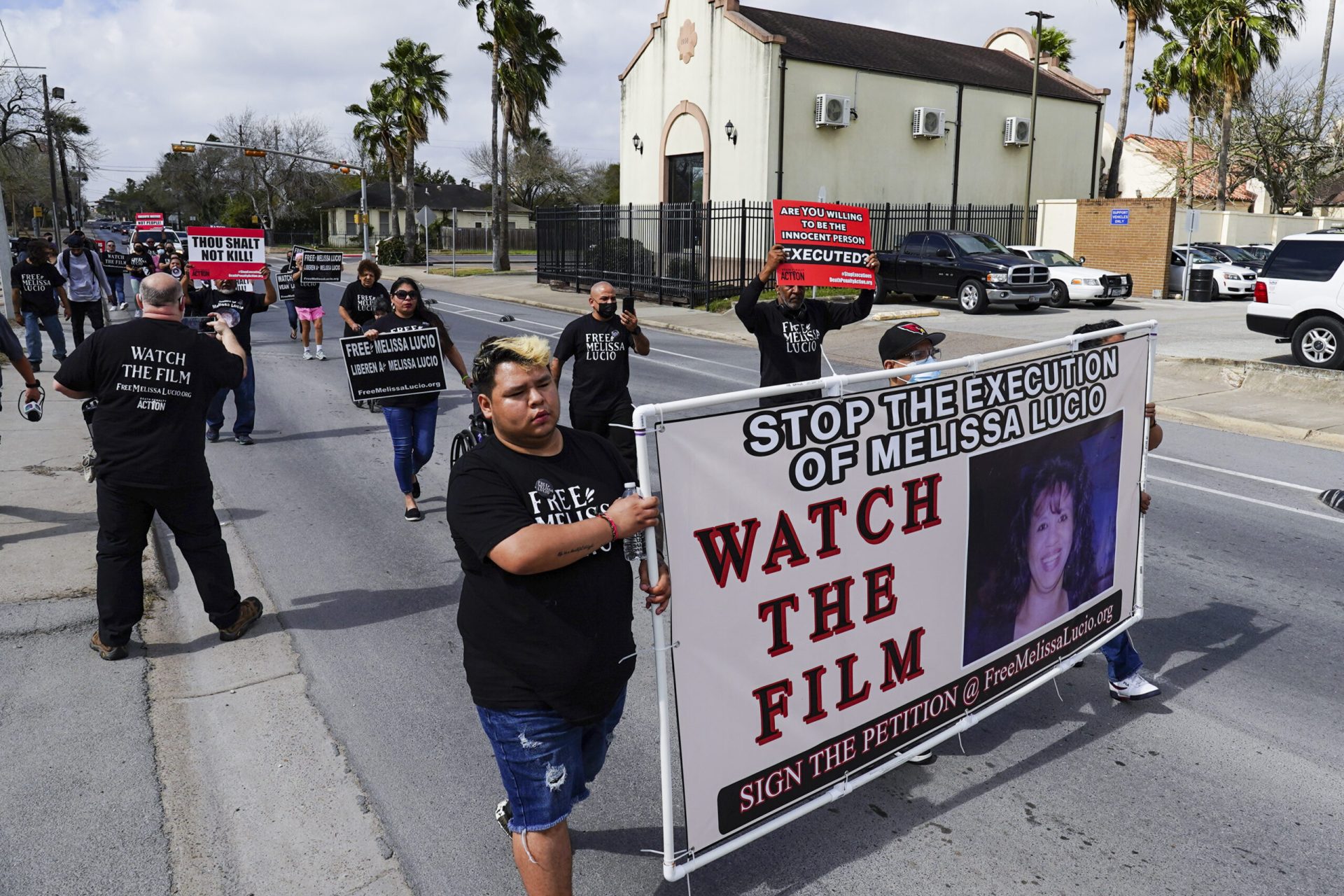
Cameron County District Attorney Luis V. Saenz told a state committee Tuesday he does not believe death row inmate Melissa Lucio will be executed April 27.
However, he stated repeatedly he would not take action now to rescind the warrant of execution he requested on Jan. 13 that was approved the following day in the 138th state District Court.
The district attorney’s testimony before the Texas House of Representatives’ Criminal Justice Reform, Interim Study standing committee, came moments after a juror in the capitol murder case officially expressed misgivings in his role in the 2008 ruling that sentenced the Harlingen woman to death.
Lucio, 53, is on death row for the February 2007 death of her 2-year-old daughter Mariah Alvarez. A Cameron County jury in 2008 found the mother guilty on one count of capital murder for causing the death of the child who had indications of having been beaten. Lucio denies killing her daughter.
“Even at the time of trial, when it seemed to me that Ms. Lucio’s defense lawyers were hardly making a case for her life, I did not want to sentence her to death,” testified former juror Johnny Galvan in a statement that was read aloud by his daughter. “I felt pressured by my fellow jurors to vote for a death sentence, and I wish I had never done so.”
Galvan cited examples of new evidence that would have changed his decision and expressed “deep regret” over the ruling Tuesday, approximately 15 days before the scheduled execution.
Galvan is now one of five jurors who have expressed misgivings. According to the district attorney, another six jurors stood by the verdict when approached by the prosecutor’s officer recently—and one other has since died.
“I will be haunted by Ms. Lucio’s execution if it goes forward,” Galvan said. “I pray Gov. Abbott grants clemency to prevent the irreversible tragedy of Ms. Lucio’s execution from taking place. It was wrong to sentence Ms. Lucio to death. I pray it is not too late to right the wrong.”
Following that testimony, Saenz told the committee more than once that “this case is not over.”

He told legislators that proceedings still include 15 live pleadings, of which he listed 13, including seven in state court, four with the court of criminal appeals, one in a federal district court, and one more with the Board of Pardons and Paroles.
“This (case) has not been finally decided. We have at last count about 15 live pleadings that have yet to be heard. Seven in state court. Four with the court of criminal appeals. One in a federal district court, and then one proceeding with the Board of Pardons and Paroles.”
“So this case is not over,” Saenz told the committee. “The system is being tested, and I expect and I have full faith that the system will show that it does work.”
In a tense exchange between representatives and the district attorney, several committee members pressed Saenz to “hit the pause button” on the scheduled execution of the first Hispanic woman on death row in Texas.
Committee chair Rep. Jeff Leach, R-Allen, pressed Saenz on whether he had the authority to rescind the execution warrant and if he would exercise that power.
“At this time, even if I have that authority,” Saenz said. “I won’t do that.”
When questioned whether anyone from the Lucio family has asked him that he rescind the execution order, Saenz focused on the slain child.
“Do you know that Baby Mariah was taken from her mother when she was days old?” Saenz asked. “And Baby Mariah was returned to her mother almost two and a half years later, and from day one that she was returned to the defendant’s custody of care and control, 88 days later she was dead.”

Leach said the committee would not be relitigating the case in the hearing.
“Oh, now, you’re not going to relitigate it?” Saenz pushed back.
Saenz questioned what evidence or reason he would rescind the execution request, an effort that would have to be approved by a judge. He said doing so at this point in the process would undermine the pending court appeals process and the authority of the courts.
However, this stance did not please Leach, who said the district attorney’s insistence not to request a pause was “shocking and disappointing.”
“I’m just going to state it,” Leach said. “You have the power, right now, single-handedly, tonight to withdraw this request. To press the pause button on her execution so exactly what you said could take place. We could have new evidence, and there could be opportunity for cross examination. So that Melissa Lucio could get what all of us are entitled to and what I know you care so much about—and that is a fair trial.”
A stay of execution could still happen through the court process, Saenz quickly responded.
“And that may still happen when a court makes a finding that something went wrong and sends it back to us for trial,” Saenz replied.
Leach said that he hoped that happens but accused Saenz of “washing your hands of your ability to make this decision yourself.”
Further pressed by committee members, Saenz promised to request a pause of the execution warrant only if court appeals motions remained pending shortly before the scheduled execution. Until then, he wanted to let the process unfold, potentially gaining a court ruling about what elements of the case would be deemed questionable.
Committee members asked Saenz for a timeline of when he believed a court could issue a possible stay.
“I expect the courts to rule either this week or next week,” Saenz said.
Shortly after the execution warrant was issued in January, advocates began a petition asking Saenz to withdraw the requested execution date.
In January, Saenz responded to the media covering the petition efforts by saying: ““The condition of Mariah’s body indicated that she had been severely beaten. There were bruises in various states of healing covering her body, there were bite marks on her back, one of her arms had been broken probably about 2 to 7 weeks prior to her death and she was missing portions of her hair where it had been pulled out by the roots. Her autopsy revealed bruised kidneys, a bruised spinal cord and bruised lungs. The emergency room physician testified that this was the ‘absolute worst’ case of child abuse that he had seen in his 30 years of practice.”
Tuesday was the deadline for the district attorney’s office to provide an opinion to courts on Lucio’s request for clemency. The district attorney would not discuss the details of what he submitted to courts.
Committee members asked Saenz to own his decision not to rescind his request for an execution warrant immediately.
“If defendant Lucio does not get a stay by a certain day, then I will stop it. I am owning it,” the district attorney said.



